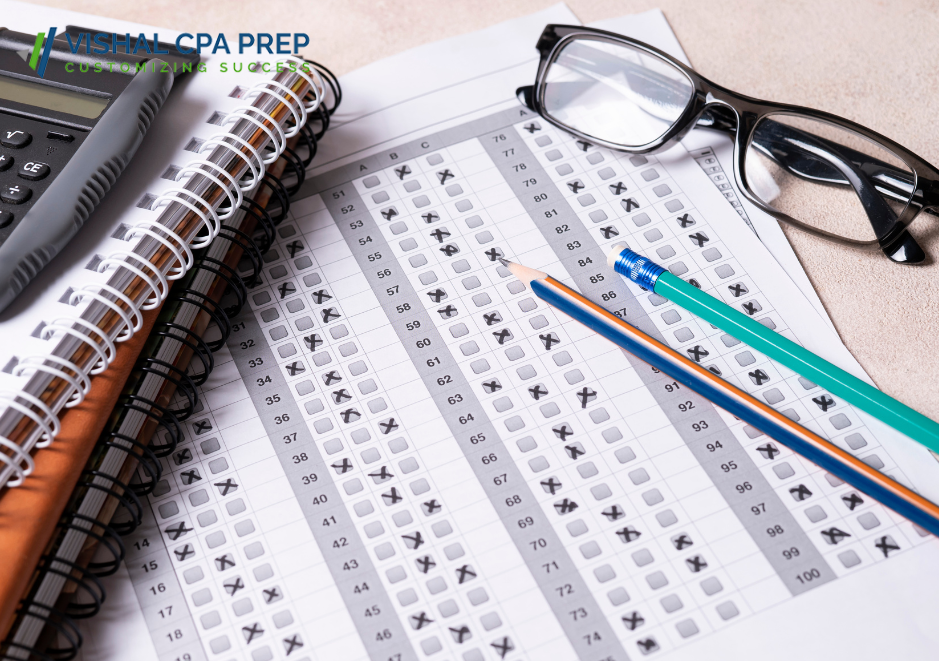
The Certified Public Accountant (CPA) exam serves as a pivotal point for individuals aspiring to enter the world of finance and accounting. This comprehensive article delves into the intricacies of CPA exam trends, specifically focusing on pass rates and the multifaceted factors that contribute to candidate success. By examining these aspects, we aim to provide a deeper understanding of the CPA exam's evolving landscape and offer insights to help candidates prepare effectively.
1. Introduction
The CPA exam stands as a defining challenge for those on the path to becoming certified public accountants. An in-depth analysis of the trends surrounding CPA exam pass rates and the critical success factors guiding candidates towards victory offers a glimpse into the ever-evolving world of finance and accounting.
2. The Dynamics of CPA Exam Pass Rates
The world of the CPA exam is dynamic, marked by fluctuating pass rates that reflect the intricate nature of its content. These pass rates vary depending on the specific section of the exam and the timing of the test, but they tend to hover around 50-60%. This statistic underscores the rigorous nature of the examination and the imperative for comprehensive and strategic preparation.
3. Decoding Success Factors for the CPA Exam
3.1. Strategic Study Resources and Preparation
Achieving success in the CPA exam requires meticulous preparation, with candidates investing substantial time and effort in their studies. High-quality CPA review courses, supplemented by practice exams and interactive study groups, form the backbone of effective preparation. The integration of adaptive learning technologies personalizes the learning experience, catering to individual needs and boosting retention.
3.2. Mastering Test-Taking Techniques
Strategic test-taking techniques are pivotal in attaining a favorable outcome on the CPA exam. The art of time management, coupled with insightful question analysis and a profound understanding of the exam's format, is paramount. Engaging in mock exams and simulation exercises simulates real testing conditions, equipping candidates with invaluable skills and confidence.
3.3. The Role of Educational Background
While the CPA exam evaluates skills essential for successful accounting practice, a strong educational foundation provides a valuable head start. Graduates from accredited accounting programs may find themselves better aligned with exam content, enabling them to navigate the test with greater familiarity and ease.
3.4. Harnessing Work Experience
Work experience emerges as a formidable contributor to CPA exam performance. Candidates with practical exposure to accounting roles often excel in translating theoretical concepts into real-world scenarios tested on the exam. The ability to apply acquired knowledge to practical situations enhances both understanding and critical thinking.
4. The Tech-Driven Evolution of CPA Exam Preparation
The realm of accounting is experiencing a technological revolution that is revolutionizing the way candidates approach CPA exam preparation. Adaptive learning platforms, guided by artificial intelligence, offer tailor-made study guides, virtual simulations, and AI-driven study paths. These innovations empower candidates to personalize their learning journey, identify areas of weakness, and ultimately elevate their chances of success.
5. Frequently Asked Questions about CPA Exam Trends
5.1. What is the average CPA exam pass rate?
The average pass rate for the CPA exam typically falls within the range of 50-60%, contingent on the exam section and the testing window.
5.2. How can candidates improve their CPA exam performance?
Candidates can enhance their performance by allocating sufficient time to preparation, leveraging high-quality study materials, honing test-taking strategies, and embracing technology-driven learning platforms.
5.3. Is work experience a significant factor in CPA exam success?
Absolutely. Work experience enhances a candidate's ability to contextualize theoretical knowledge within real-world scenarios, fostering a deeper understanding and sharpening analytical skills.
5.4. Are there variations in pass rates among different sections of the CPA exam?
Yes, variations exist among the four sections of the CPA exam due to differing content and complexity.
5.5. What role does adaptive learning technology play in CPA exam preparation?
Adaptive learning technology tailors study plans to individual learning preferences, identifies areas of weakness, and offers a customized and efficient study experience.
Conclusion: Paving the Path to CPA Success
As the accounting profession evolves, conquering the CPA exam remains a pivotal achievement. Analyzing pass rate trends and comprehending the multifaceted success factors empowers aspiring accountants to navigate this journey with confidence. By embracing strategic preparation, leveraging technological advancements, and tapping into personal strengths, candidates position themselves for a thriving career in the dynamic world of finance and accounting.
